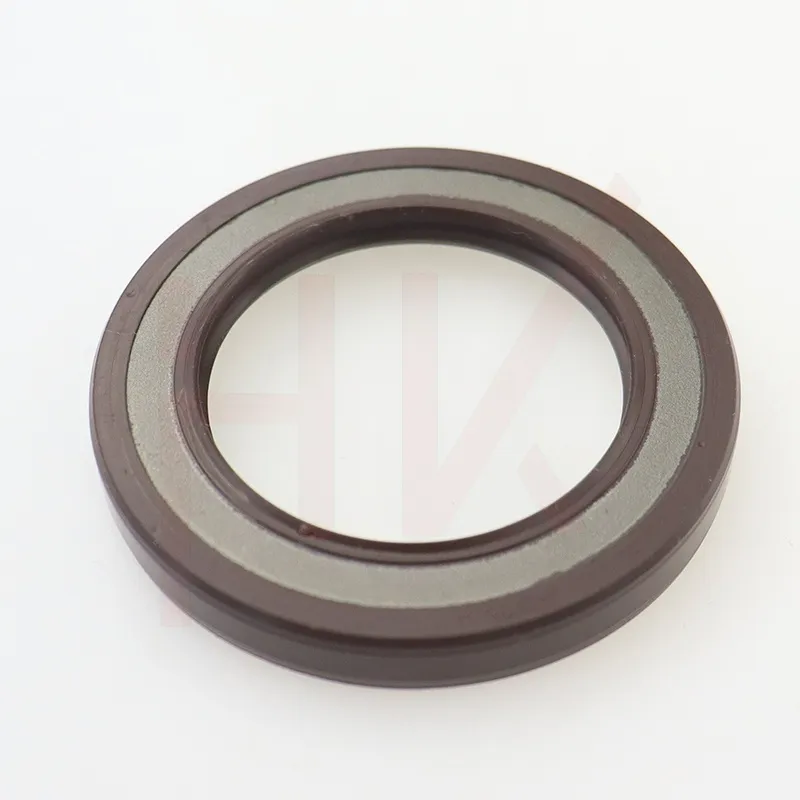Dec . 03, 2024 17:41 Back to list
oil pump seal
Understanding the Importance of Oil Pump Seals in Machinery
Oil pump seals play a critical role in the efficient operation of various machinery, particularly in automotive engines and industrial systems. These components are designed to prevent the leakage of oil, ensuring proper lubrication and functioning of the pump and the system it serves. This article delves into the significance of oil pump seals, their types, common issues associated with them, and maintenance tips to prolong their lifespan.
The Role of Oil Pump Seals
Oil pump seals are essential to maintaining the integrity of the oil system within machinery. Their primary function is to create a barrier that prevents oil from leaking out of the pump and into the surrounding environment. This sealing is crucial since oil serves as a lubricant, cooling agent, and protector against corrosion for the moving parts within an engine or machine. Without a proper seal, oil can escape, leading to insufficient lubrication, increased friction, and, ultimately, potential engine failure.
Additionally, oil leakage can lead to environmental pollution, making the use of effective seals even more pertinent. Leaking oil can contaminate soil and water supplies and pose hazards to wildlife. Thus, using reliable oil pump seals contributes not just to machinery efficiency but also to environmental protection.
Types of Oil Pump Seals
Several types of oil pump seals are used across different applications. The most common types include
1. Rotary Seals These are designed to seal rotating shafts, preventing the escape of oil while accommodating the shaft's motion. Rotary seals are often made from elastomers or thermoplastic materials, providing flexibility and resilience.
2. Static Seals Unlike rotary seals, static seals do not move relative to the surfaces they seal. They are often used where parts are bolted together, preventing fluid leaks between these joints.
3. Lip Seals A subtype of rotary seals, lip seals have a flexible lip that presses against the shaft, creating a tight seal. They are effective in high-speed applications and can adapt to various shaft sizes and materials.
4. O-Ring Seals O-rings are circular rubber seals used in various applications, including oil pumps. They are known for their versatility and ability to create strong seals in both static and dynamic conditions.
Common Issues with Oil Pump Seals
Despite their importance, oil pump seals can deteriorate over time due to various factors. Common issues include
oil pump seal

- Wear and Tear Continuous exposure to oil, heat, and mechanical stress can lead to the gradual degradation of seal material, resulting in leaks.
- Improper Installation Incorrectly installed seals can lead to inadequate sealing, making it essential to follow manufacturer guidelines during installation.
- Material Compatibility The choice of seal material must be compatible with the oil being used. Using seals made of materials not suited for a particular oil type can lead to breakdown and leakage.
- Contamination Foreign particles and contaminants can damage seals, leading to premature failure. Regular maintenance is necessary to keep the surrounding area free of debris.
Maintenance Tips
To enhance the lifespan of oil pump seals and ensure optimal performance, consider these maintenance tips
1. Regular Inspections Check seals periodically for signs of wear or leaks. Early detection can prevent more significant issues down the line.
2. Use Quality Oils Opt for high-quality oils that are appropriate for your machinery. Poor-quality oils can cause seal degradation.
3. Follow Manufacturer Guidelines Always adhere to the manufacturer's recommendations regarding seal installation and maintenance.
4. Keep it Clean Maintain a clean environment around the pump to minimize the risk of contaminants damaging the seals.
5. Replace When Necessary Don’t hesitate to replace seals that show signs of wear. Investing in new seals can save you from costly repairs due to oil leaks.
Conclusion
In conclusion, oil pump seals are vital components that ensure the efficient operation and longevity of machinery. Understanding their significance, recognizing the potential issues, and maintaining them properly can prevent costly damages and extend the lifespan of your equipment. By prioritizing the integrity of oil pump seals, you contribute to both the efficiency of your machinery and the protection of the environment.
-
Unlocking the Potential of Hydraulic Systems with Essential Sealing Solutions
NewsAug.06,2025
-
Unleash the Power of Your Hydraulic Systems with Our Premium Seal Kits
NewsAug.06,2025
-
Specialized Hydraulic Seal Kits for Breakers, Pistons, and Presses
NewsAug.06,2025
-
Revitalize Hydraulic Systems with Premium Repair and Seal Kits
NewsAug.06,2025
-
Fortify Your Cylinders with Premium Sealing Solutions
NewsAug.06,2025
-
Elevate Hydraulic System Reliability with Specialized Seal Kits
NewsAug.06,2025
-
TCN Oil Seal Metal Ring Reinforcement for Heavy Machinery
NewsJul.25,2025
Products categories
















